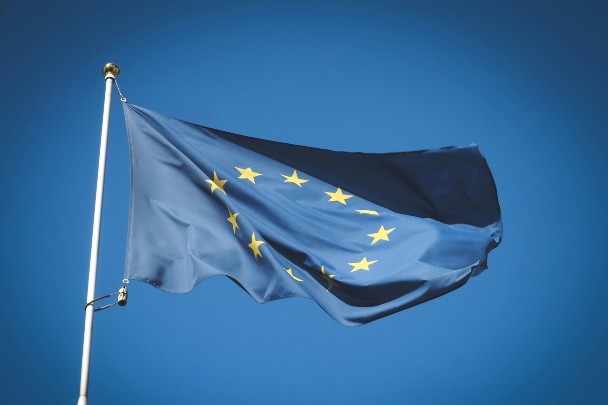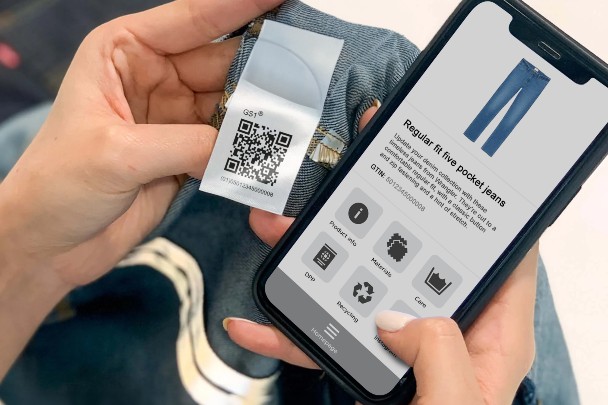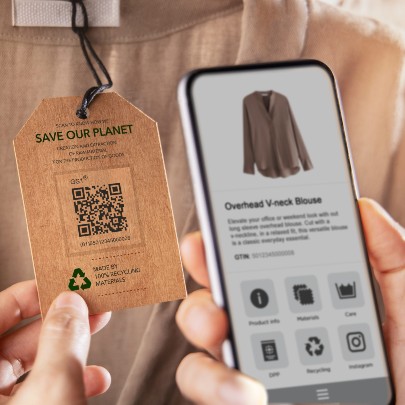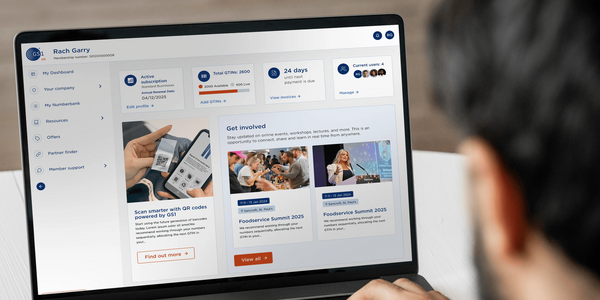May 21, 2025 Industry news
Led by GS1 UK’s Laura Milillo, our recent webinar, “Introduction to Digital Product Passports: practical steps for implementation”, provided clarity on what Digital Product Passports (DPPs) are, what is driving their rapid introduction, and how businesses can begin preparing now to meet new regulatory obligations under the EU’s Ecodesign for Sustainable Products Regulation (ESPR).
While the concept of DPPs is becoming more widely discussed across Europe, awareness in the UK remains limited. "A lot of UK businesses still don’t know what a Digital Product Passport actually is," said Laura at the outset. "This is something we need to fix and fast, because the regulations are coming and the expectations for compliance are significant."
Why Digital Product Passports matter
A DPP is a structured, digital record that contains key product information – such as composition, repairability, recyclability, and sustainability credentials – and follows the product through its entire lifecycle. The aim is to make products more transparent, support circular business models and ultimately reduce environmental harm.

Laura explained that the introduction of DPPs under the ESPR will impact a wide range of sectors, beginning with textiles, batteries and electronics.
"What we’re seeing from the EU is a clear intent to embed transparency and traceability into product regulation," she said. "The DPP is the mechanism for making that happen."
The regulations will require businesses to provide product-specific data in a digital format, accessible to consumers, regulators, recyclers and other stakeholders.
While the UK may no longer be part of the EU, any business placing goods on the European market will need to comply.
A wake up call for industry
Despite the urgency, many UK businesses remain unprepared. "There’s a general lack of awareness, and more worryingly, a lack of preparedness," said Laura. "There’s still time to get ready, but only if you start now."
Laura emphasised that successful implementation of DPPs depends heavily on one thing: data. "Getting your data in order is absolutely critical," said Laura. "You can’t build a DPP without knowing what’s in your products, how they’re made and where they’ve been."
"It’s not just a compliance issue, she continued, this is about building trust with your customers, your regulators and your supply chain partners."
How GS1 standards enable DPPs
GS1 standards provide the foundational tools to support DPP implementation, ensuring consistency, interoperability and traceability across sectors and markets. Laura described them as "a common language for sharing information".

The Global Trade Item Number (GTIN) enables unique product identification, a critical first step in creating any digital passport. The GS1 Digital Link standard allows a product’s GTIN to be embedded into a QR code or similar data carrier, connecting it to web-based product data. Meanwhile, EPCIS (Electronic Product Code Information Services) facilitates real-time sharing of information about where a product is and what’s happening to it at various stages of the supply chain.
"These aren’t new technologies," Laura reminded attendees. "They’re tools that thousands of businesses are already using to track, trace and manage products. What’s changing is the way this information will need to be shared and made visible across product lifecycles."
A practical example: Loake Shoemakers
To illustrate what successful DPP implementation can look like in practice, Laura shared the example of Loake Shoemakers, a heritage British footwear brand. Working with GS1 UK and technology partner Buyerdock, Loake created DPPs for its shoe range.
Each pair of shoes was assigned a GTIN and tagged with a QR code powered by GS1. Scanning the QR code took customers to a unique product landing page containing information on materials, sourcing, sustainability credentials and care instructions. It also supported compliance with EU packaging regulations.
"This is a great example of using what’s already available to meet tomorrow’s challenges," said Laura. "The feedback from Loake’s customers and internal teams has been really positive."

Our values are rooted in quality and transparency. The Digital Product Passport helps us tell that story more clearly and prepares us for what’s coming."
Ian Smith
Sustainability manager at Loake Shoemakers
Steps to take now
Laura ended the session by urging businesses to begin by assessing their data capabilities. "Start by mapping what data you have, where it lives and what formats it’s in. Then look at what you’re missing."
From there, she advised, businesses should consider adopting GS1 identifiers across their product ranges, implementing QR codes powered by GS1 and working with supply chain partners to align data standards and access. Staying informed on regulatory timelines and seeking expert guidance where needed will also be essential.
Here are some of the key steps she outlined:
- Audit your data: map the data you currently have, identify where it is stored, and assess the formats it is in. Understand what’s missing and what needs updating.
- Adopt GS1 identifiers: ensure every product has a unique Global Trade Item Number (GTIN). This is the foundation for linking digital product information.
- Implement GS1 Digital Link: Use QR code data carriers that connect your GTINs to online, structured data using GS1 Digital Link.
- Align your supply chain: work collaboratively with suppliers, partners, and customers to ensure data consistency and shared standards across the chain.
- Leverage EPCIS: for real-time visibility and event tracking, begin implementing EPCIS to share information on product location, condition, and handling.
- Stay informed: regularly monitor updates on the ESPR and emerging digital passport requirements to ensure ongoing compliance.
- Seek support: consider engaging GS1 UK’s guidance, tools, and partner network for tailored support and solution recommendations.

"The most important message today is: don’t wait. The regulatory direction is clear” Laura concluded. “The expectations are rising. And the businesses that act now will be the ones that thrive later."
For more support and guidance on DPPs, GS1 UK offers a suite of tools, training, and partner connections to help businesses of all sizes begin their journey.
Get in touch to find out more.




